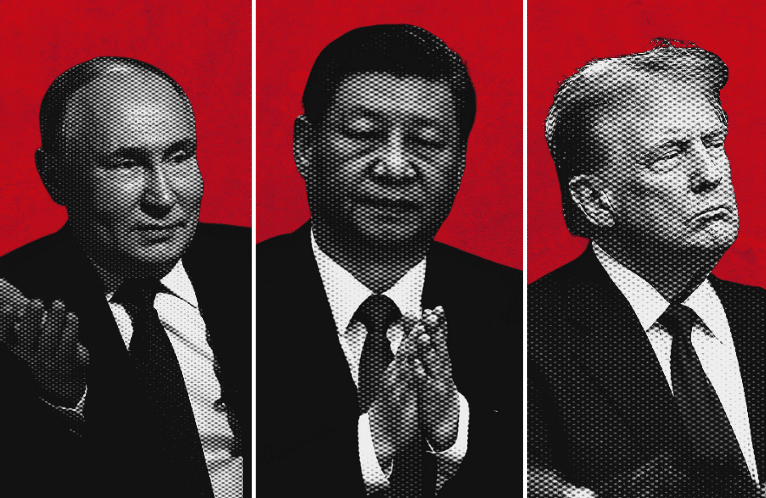Opinion: Democracy or Indecency?
The views expressed in this article belong entirely to the author and do not represent the views of the US-China Perception Monitor or the China Program at The Carter Center.
It was 1960. Two men were running to be the commander-in-chief of their country. You may think that this was but another American presidential election, yet what truly differentiated this particular campaign from its predecessors was not the qualifications of the candidates or the exclusiveness of the competition-but instead-the flashing cameras.
The Kennedy-Nixon presidential election marked the first televised presidential debate in American history. In this election, Kennedy was said to have eventually won his people not only by his policies but also by his remarkable charisma, to which a sweat-drenched Nixon could hardly rival. This tradition would remain in America for the next half century, as television and media continue to act as essential factors in a successful political campaign. In fact, today’s presidential debates seem to encapsulate qualities of reality TV shows and are often utilized widely for entertainment purposes. This effect has spurred much conversation and earned the presidential debate stage a reputation of seeming more like an amusement platform. In fact, this phenomenon has even inspired celebrities and reality TV stars to “shoot for the stars” and bargain for their place in the Oval Office.
While it is completely justified for any eligible citizen with a love for their country to run for the presidency, one must question the credibility of unprepared individuals who exploit this privilege and use it to downplay their nation’s politics. Mr. Donald Trump, for example, brings behaviour that might be common on Celebrity Apprentice to the GOP stage instead. His bombastic slogans and controversial comments has earned him excessive attention from the media, which has become his best advertisement. This frequent media exposure and constant demagoguery has earned Mr. Trump almost every Republican primary and secured his position as the Republican front runner. Should this occurrence continue, it seems very likely that the reality TV star will become the Republican Party’s presidential nominee, and heir to the legacies of Abraham Lincoln and Theodore Roosevelt.
Mr. Trump has been widely acclaimed for his apparent honesty and disregard for political filters. Nevertheless, his comments have led to uproarious responses and backlash from the international community. In advocating for his policies, Mr. Trump has insulted many of America’s major allies as well as some of the greatest superpowers across the globe. His feedback ranged from subtle dismay to public discussions on a lifetime ban of entering Great Britain. Mr. Trump may have once seemed harmless, but now with the general election approaching us, we must examine this issue again.
Mr. Trump once said, “I think the big problem this country has is being politically correct.” This attitude may be appreciated by the media and reality TV, but it does not demonstrate the decency and respect American leaders must pay to global society. Nevertheless, his frankness, with some inflation from the media, has proven to be effective in winning people’s hearts. His rhetorics have given people the false impression that politics can be treated like a reality show, where one selects the option that would provide the best entertainment. These beliefs will be immensely dangerous for the nation’s future.
It is an aimable characteristic of democracy for everyone to have an equal opportunity in political campaigns, but now is also the time to question the extent of this attribute. Is it honestly appropriate to display the U.S. presidency election to the world as if it was a crude act, in which anyone is allowed participate at any time? Or is this but an inevitable malfunction of any democracy? In truth, the responsibility to uphold a healthy democracy does not lie solely with the political candidates. After all, the voters still retain the freedom to support the candidate of their own will. The media’s major priority should be reporting the individual policies and promises of each candidate instead of grossly dramatizing the election and feeding the fame of controversial candidates.
If democracy allows the rise of such candidates, yet the American people can still make the right decisions in spite of all the propaganda…then that is a truly impressive accomplishment.
By MARGARET LU Apr. 2, 2016 on USCNPM








